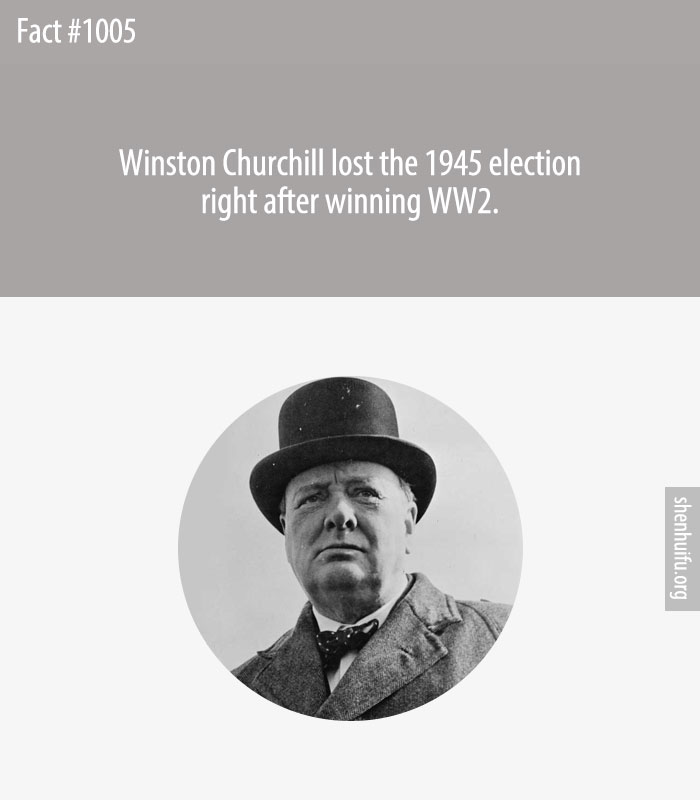
Winston Churchill lost the 1945 election right after winning WW2.
The question is: how did Churchill, a popular and battle-hardened political stalwart, fail to win the support of the British people in July 1945?
1. The hangover of pre-war “appeasement”
2. The Conservatives concentrated too much on Churchill
3. The need to “face the future”
4. Ill-judged campaign rhetoric
5. Predictable political forces
In 1940 Winston Churchill was appointed Prime Minister of a Britain who appeared to be losing the Second World War against Germany. Having been in and out of favor over a long career, having been ousted from one government in World War One only to return later to great effect, and as a long-standing critic of Hitler, he was an interesting choice. He created a coalition drawing on the three main parties of Britain – Labour, Liberal, and Conservative – and turned all his attention to fighting the war. As he masterfully kept the coalition together, kept the military together, kept international alliances between capitalist and communist together, so he rejected pursuing party politics, refusing to aggrandize his Conservative party with the successes he and Britain began to experience. For many modern viewers, it might seem that handling the war would merit re-election, but when the war was coming to a conclusion, and when Britain divided back into party politics for the election of 1945, Churchill found himself at a disadvantage as his grasp of what people wanted, or at least what to offer them, had not developed.
